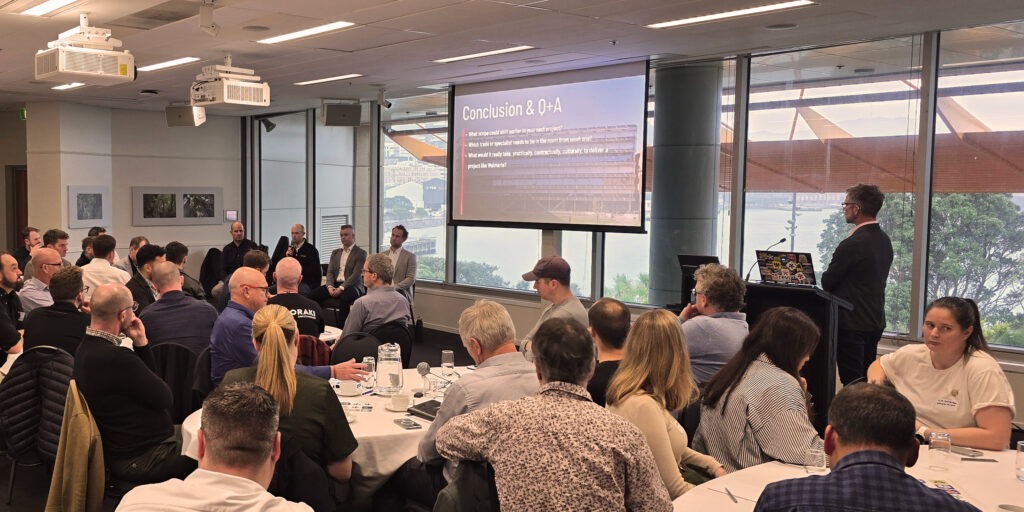The small change that could dramatically improve NZ construction outcomes
Jason Howden is the Chief Innovation Officer at Revizto and the lead for an industry white paper published this week that explores the merits of Integrated Project Delivery in New Zealand.
OPINION: Rising commercial construction costs, public infrastructure delays, and building contractors going into receivership.
This situation is all too common in New Zealand’s construction sector, but with political leadership and the adoption of a new project delivery methodology that’s showing real promise overseas, the story could be quite different.
The predominant approach for construction projects in New Zealand is design-bid-build, which typically involves a project owner creating separate contracts with designers, builders and other project parties, and holding each responsible for completing their respective tasks.
This leads to inefficiencies, as different parties can work at cross purposes, and all too often the building contractors identify issues during construction that might have been avoided if they had been involved in at its outset. What’s more, if things go wrong, the parties often resort to finger pointing, hoping to wash their hands of issues and potential cost implications.

Digitally-enabled Integrated Project Delivery (IPD 2.0) is an alternative approach that could be transformative for New Zealand. Unlike the separate agreements seen in design-bid-build projects, this methodology fosters collaboration and risk-sharing by joining project parties together under a multi-party or collaborative contract from the get-go.
Modern project delivery methodologies like IPD have helped drive on-time and on-budget delivery for a growing number of projects internationally, including 65,000-seat Raiders Stadium in Las Vegas, and the impressive San Leandro Medical Centre in California.
Closer to home, in Canterbury, we’ve seen the latest incarnation of IPD used to impressive effect for delivery of Lincoln University’s Waimarie science hub, voted the world’s best education building at the 2024 World Architecture Festival Awards.
The IPD methodology was the focus of a recent industry roundtable hosted by Revizto in Wellington in July.
The event brought together more than 60 industry leaders, and the discussion and their insights led to publication of a white paper, titled The Integrated Project Delivery Advantage, on 7 October. Among the 10 recommendations included in the white paper is a call to update the NZS 3910 standard contract used for most government procurement to enable IPD on infrastructure works.
As it stands, the standard contract is set up for a design-bid-build process, which makes it difficult for asset owners and contractors to adopt an IPD methodology without significant involvement from legal teams, many of which are often unfamiliar with other approaches to project delivery.

If contractors, asset owners and government ever needed more evidence of the need for change, they need look no further than the Infrastructure Commission’s draft National Infrastructure Plan and a recent report by global accounting and consulting firm BDO.
According to the Infrastructure Commission, New Zealand ranks in the top 10% of the OECD for spending as a proportion of GDP, but in the bottom 10% for the ‘bang for buck’ it achieves. BDO’s 2025 Construction Sector Report found less than a third of construction companies that responded to a survey earlier this year planned to actively look for new staff in the year to May 2026.
Making inroads into these issues really could be as simple as a change in the way projects are delivered.
We can’t control global supply chains or the costs of materials and labour, but with education and a change to New Zealand’s standard contracts to enable IPD, asset owners and construction partners could have agency over the delivery method used to get a job done.
If that leads to efficient construction that ensures communities have the infrastructure they need when they need it, and not years later, then that would be a huge win for New Zealand.
